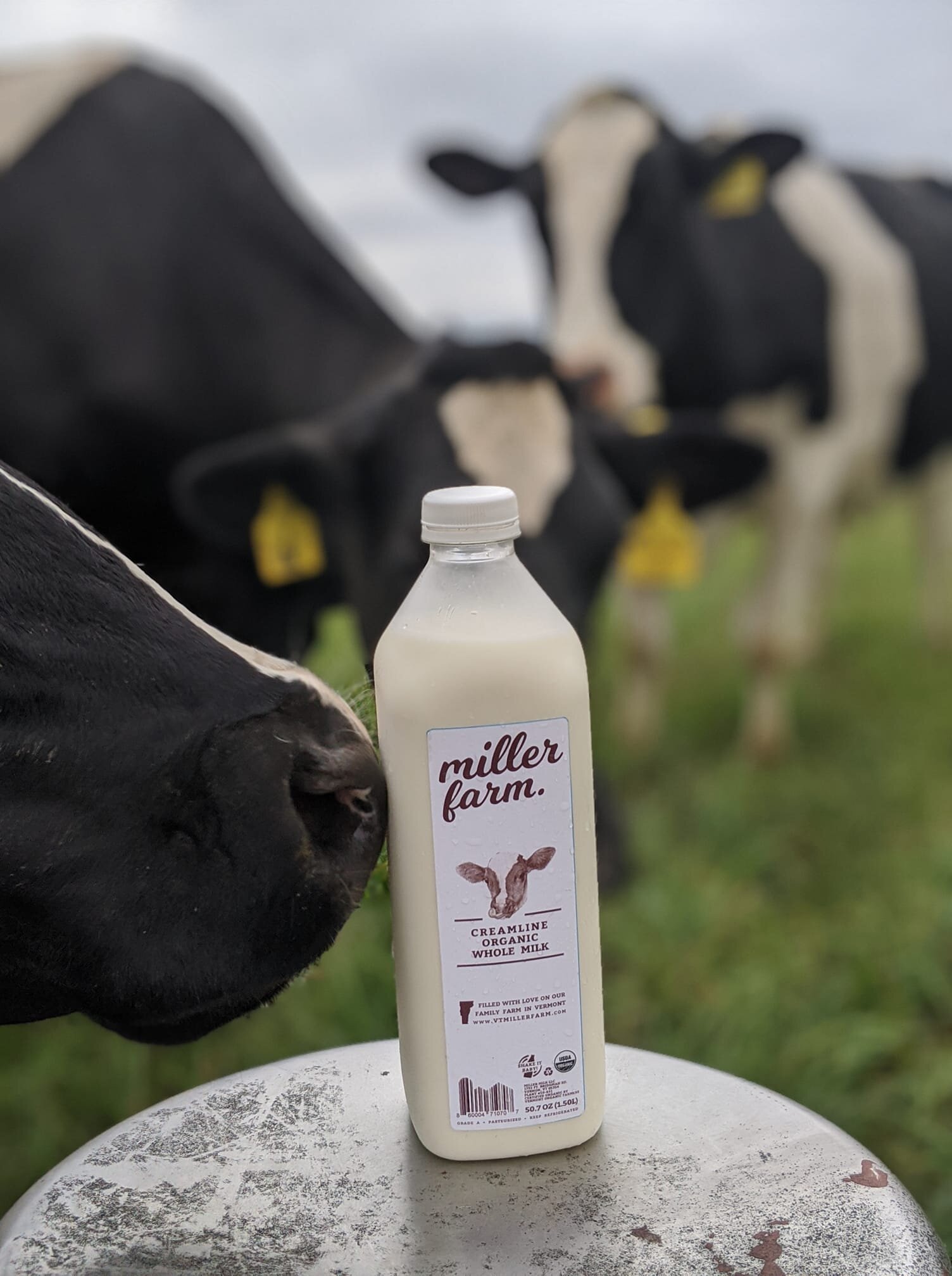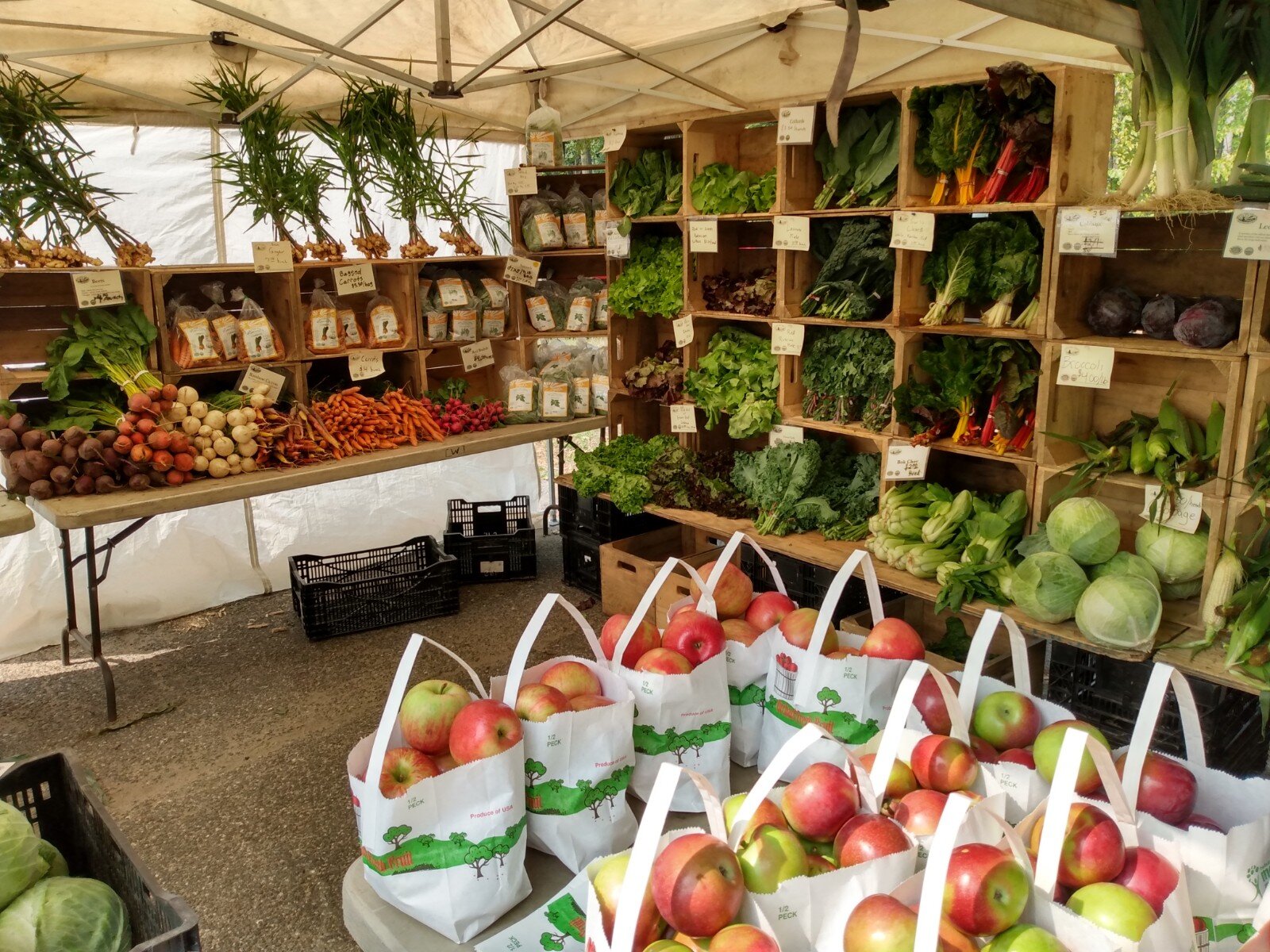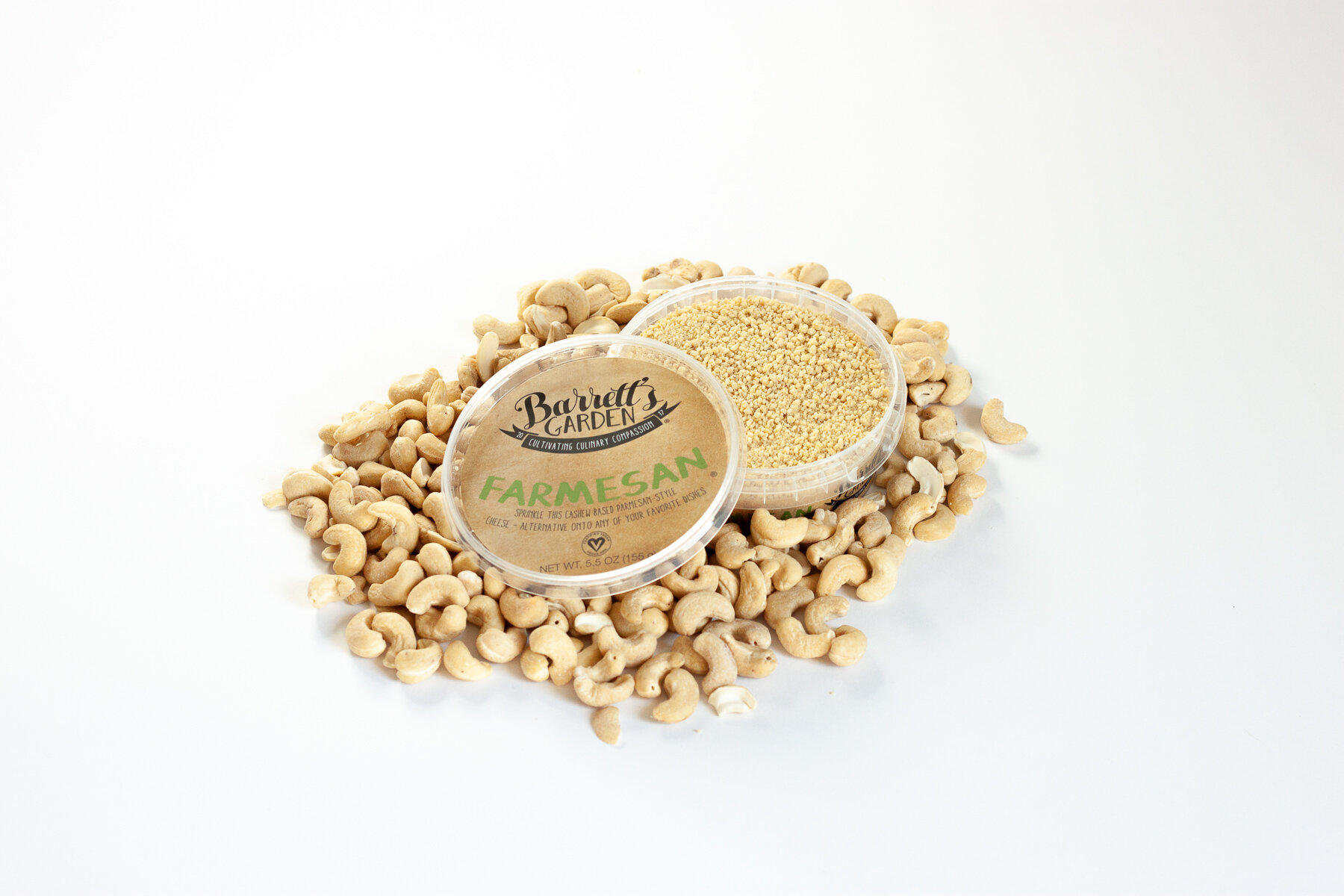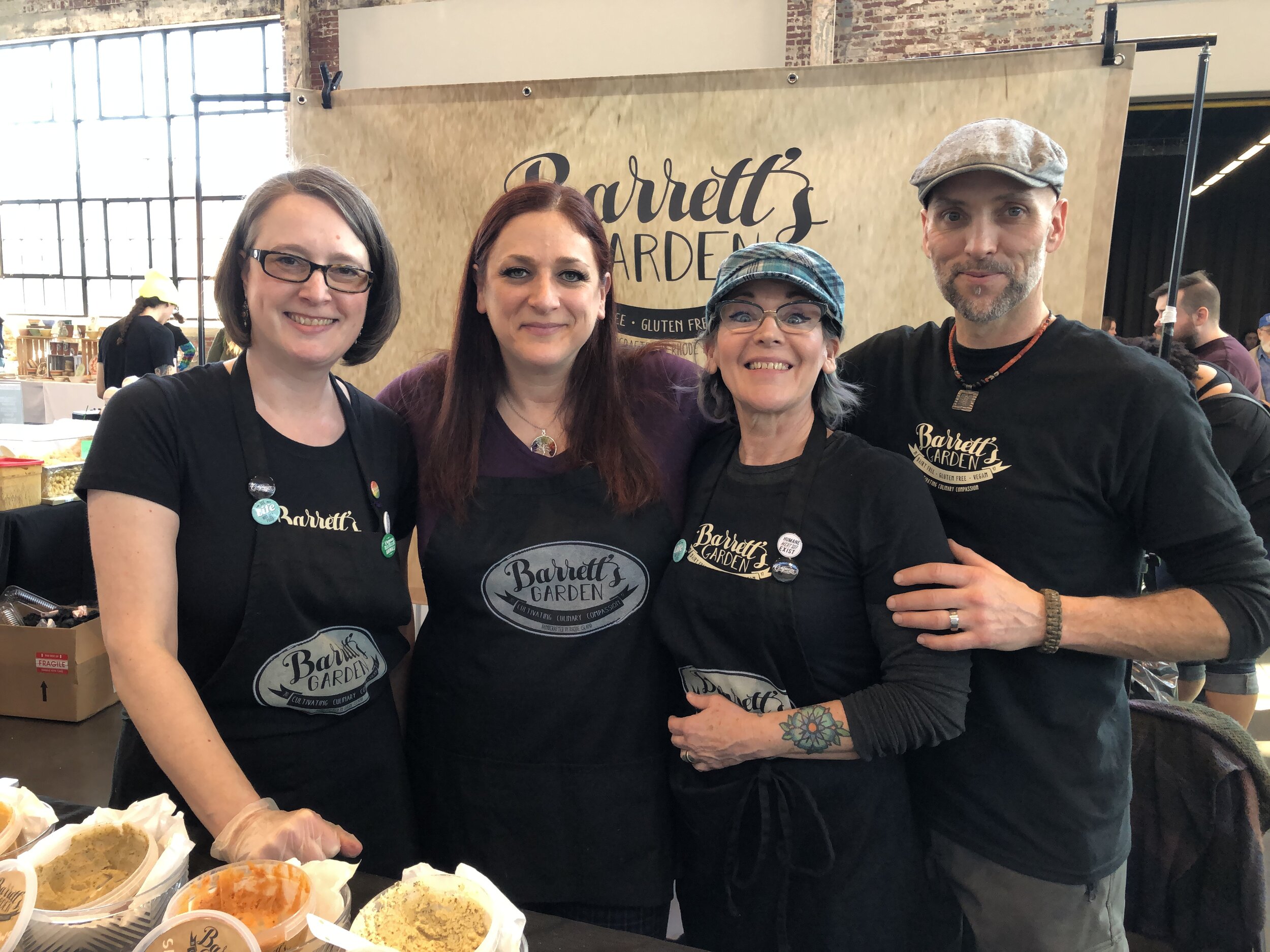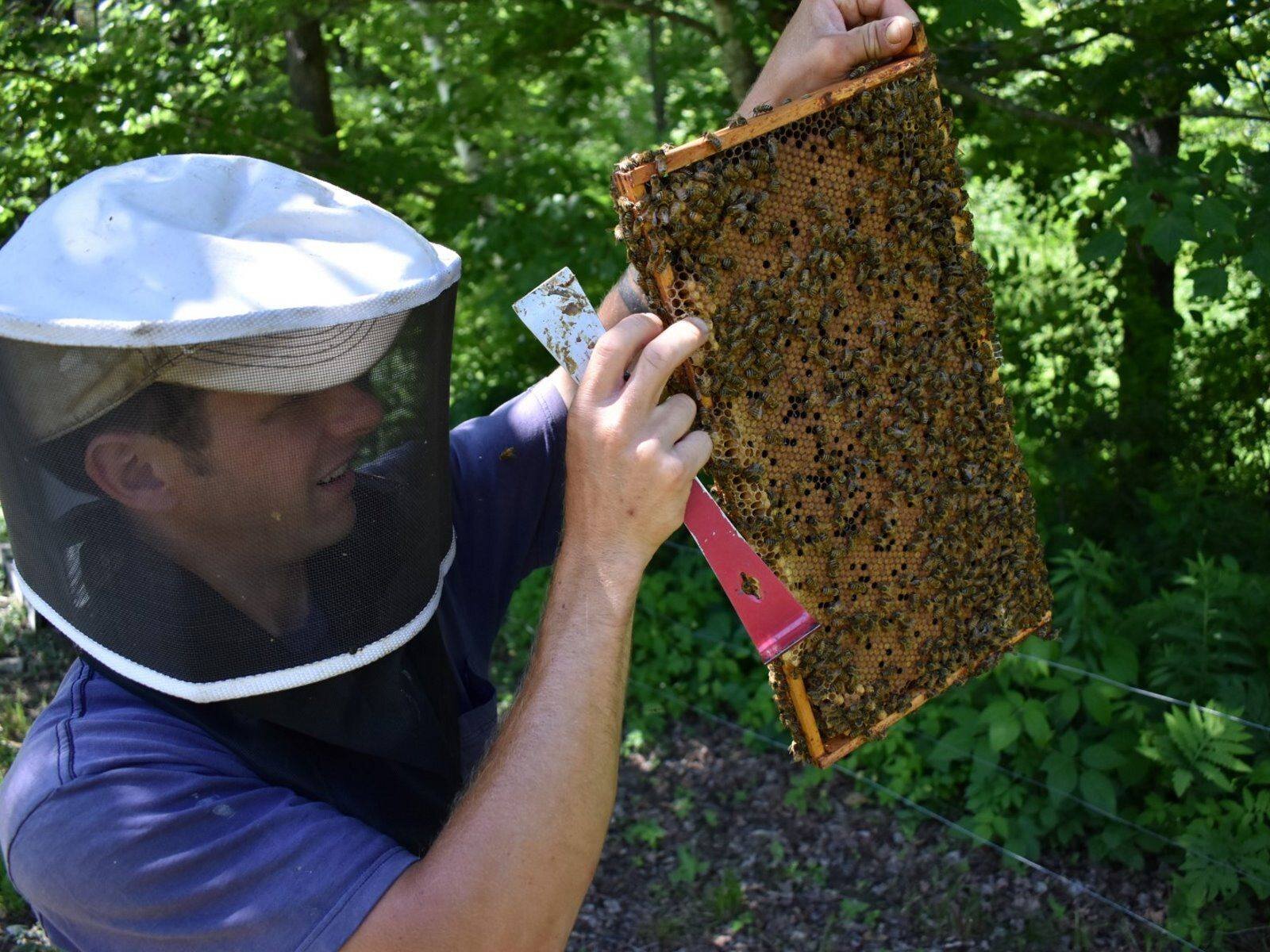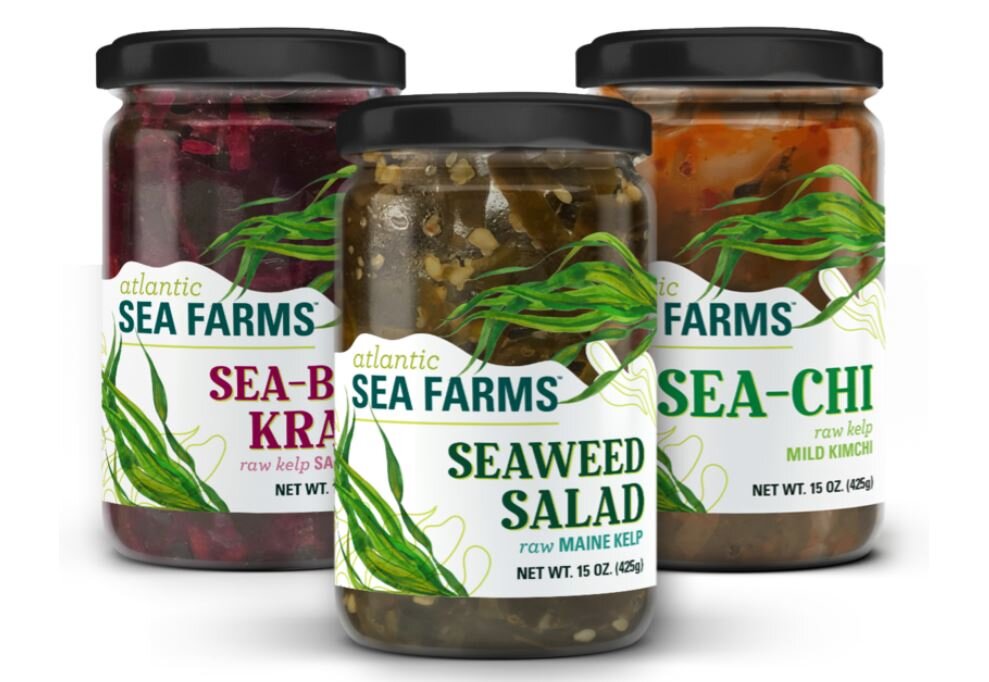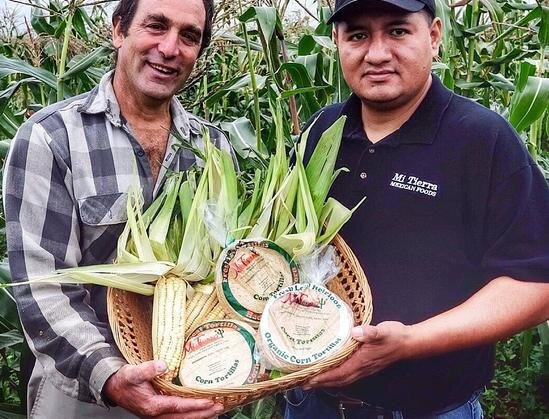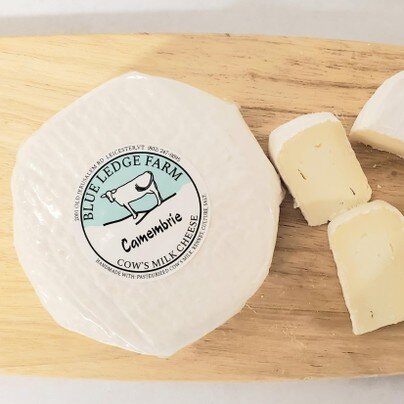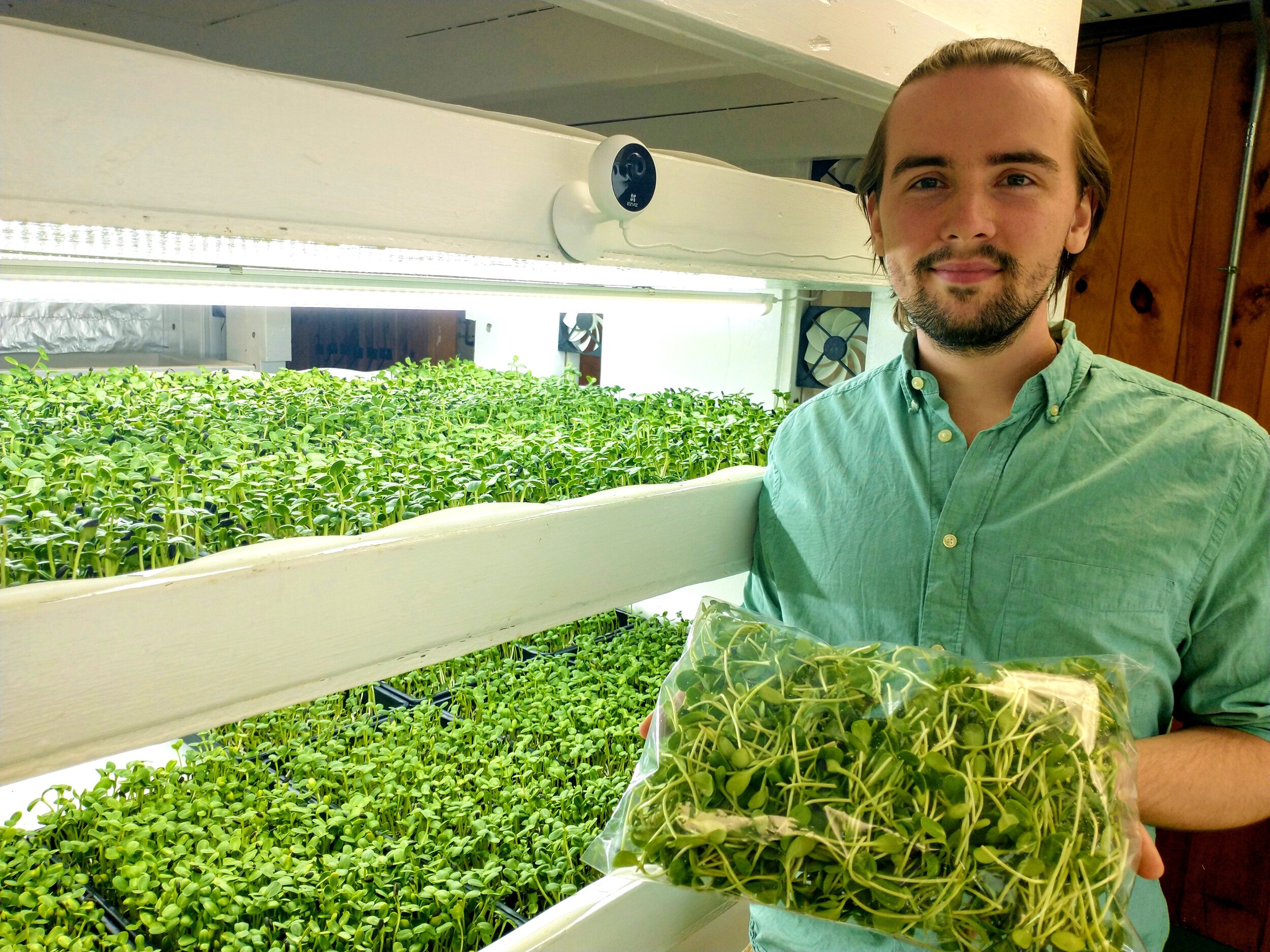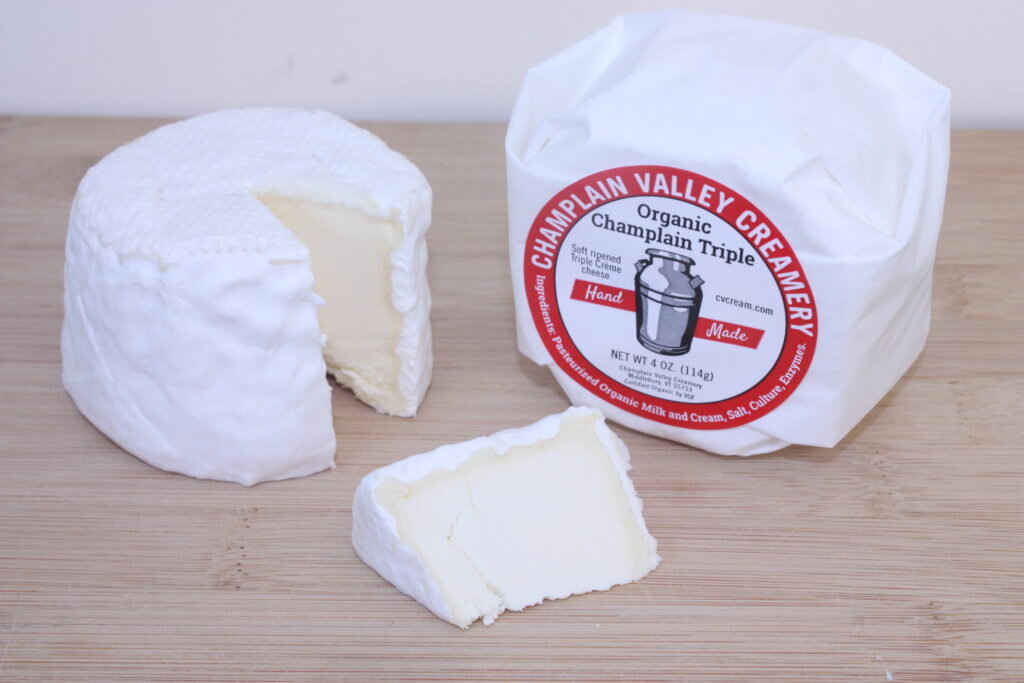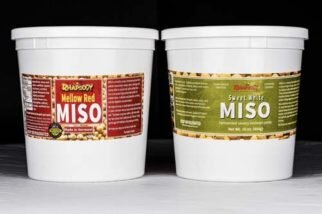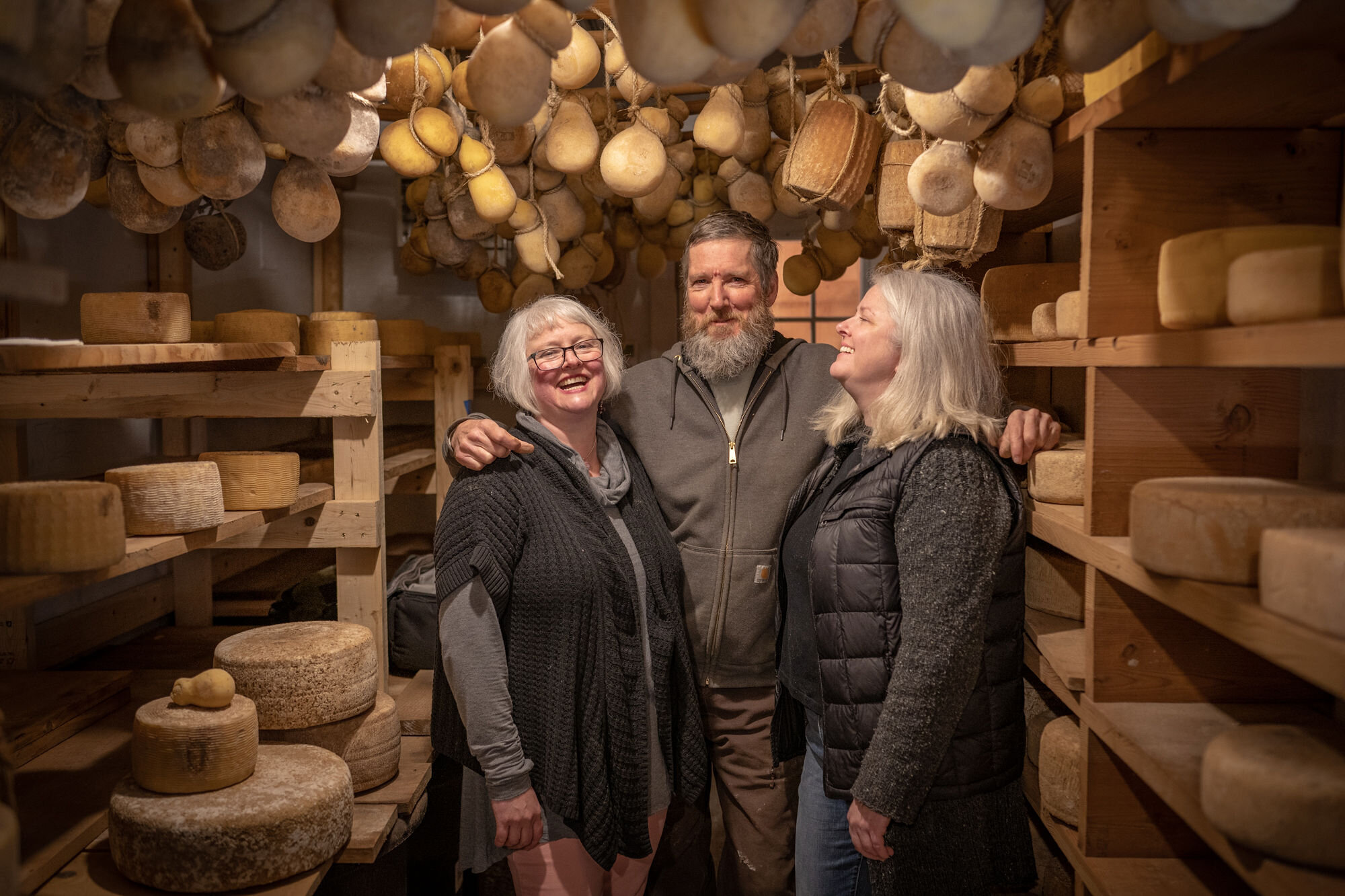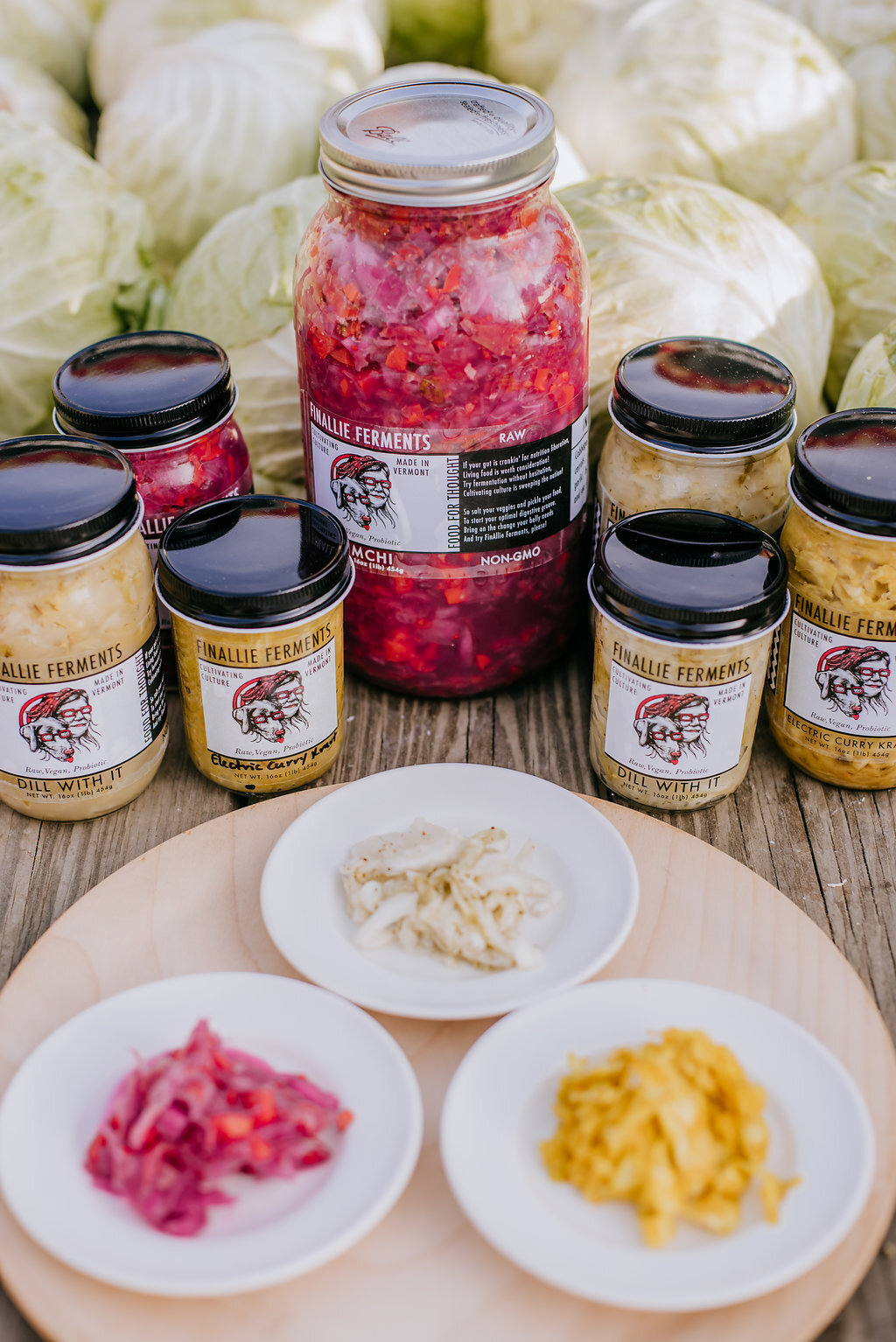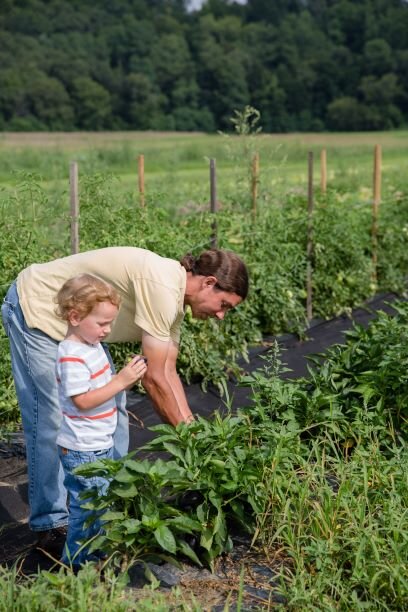Dairy farms are the backbone of New England agriculture. And Food Connects is thrilled to announce that among the dairy, yogurt, and gelato we sell, we are now adding milk to our list of products! So we would formally like to introduce our first milk producer—Miller Farm, located in Vernon, VT. Owner, Peter Miller, took some time to share more about the family farm.
How was Miller Farm started? And why did you decide to continue the family business?
My great-grandfather Arthur Miller was farming in Brattleboro on Bonnyvale road at what’s known as the Francis Miller Orchard until he needed to “expand”, and then moved to Vernon in 1916 to our current farm.
Although I was trained as an engineer, once we had kids, we realized that the farm is the best place to raise them. My daughter Abigail and her husband Brandon represent the next generation farming here are significantly financially invested in the milk processing enterprise. We are intending to invest in this farm into the future.
What makes your products and farm unique?
Within the Organic market, we are producing a creamline milk product family. We believe it’s healthier and tastier than much other milk, we’re a bit artisanal, using batch processing, rather than the high temperature continuous process, giving a different flavor profile than typical “store” milk.
Still, the vast majority of our milk (about 97% currently) is sold to Stonyfield as part of their “direct supply”. Apparently, our farm produces about 10% of this direct supply. We are still big Stonyfield fans, and see them as a fairly “local” business that has gone big. We produce nearly 2000 gallons of milk per day here, so unless something significant changes, we will continue to have a great relationship with them.
We're excited that you're Food Connects first milk producer! So a fun question, what's your favorite way to have your milk? Any fun recipes? Or just right out of the bottle?
No favorite recipes, except a whole lot of people tell us they like putting the Maple Milk in their coffee.
Why is selling locally and the local food movement is important to you?
We have always wished for our “own” product, probably a bit from an ego standpoint, however, when the pandemic unfolded, there were a lot of interruptions in the national food system, and exposed the vulnerabilities of a global economy. That catalyzed our efforts to make a local product. Just recently, reports of ransomware in the meat industry has again exposed the national food system.
Another aspect of producing a finished product is that we can control our sale price. For generations of milk producers, the price has been set by external factors, which invariably lag the cost of production, therefore, most farmers just “work harder, longer.” It reminds me of a plaque that my wife got from her grandmother: “There are 2 choices for dinner: take it or leave it.” We are pleased to be in control such that we can set a reasonable price based on our cost.
How does working with Food Connects help your business and what are you excited about in this partnership?
One thing that excites me about working with Food Connects is that some of the orders that have come through seem to be for farmstands—I just love the idea of re-training our shoppers to get more and more of their food from small outlets than just the (necessary still) grocery chains.
Any events coming up or fun facts about your business/products?
We are trying to develop a couple more flavors! Strawberry has been requested numerous times. Also, a friend brought us blueberry milk from Maine and asked that we consider producing it.
Keith Franklin, a partner in the farm has maintained a top-flight Social Media presence on Facebook, Instagram, and now even some YouTube. He’s had up to 35,000 views of certain items. His authentic farm-centric view of agriculture has been very well received.
Anything else you would like to feature? Anything that you are doing to respond to the COVID-19 crisis
Wishing it would go away. . . I got my shots as soon as I could! Covid is so central to everything, and most everyone I know in most every sector is soooo ready for it to be a memory, especially my Nurse Practitioner wife. Neither the medical workers or the farm sector had the privilege of a “Covid Renaissance.”
Check out their Brattleboro Food Co-op feature and Bennington Banner article.


